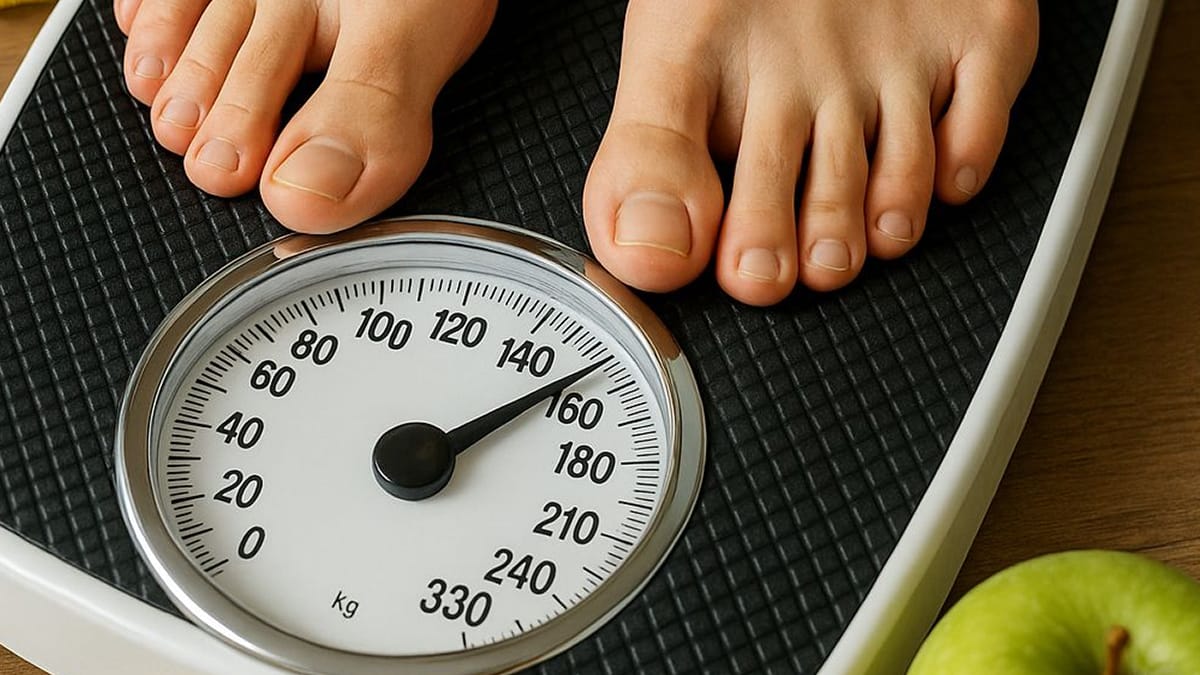Why Is Weight Loss Linked to Gut Health Balance?
Yes, weight loss is strongly linked to gut health balance, and modern research continues to confirm it. A healthy gut microbiome can improve metabolism, regulate appetite, reduce inflammation, and even influence how efficiently your body stores or burns fat. On the other hand, an imbalanced gut (gut dysbiosis) can slow weight loss, trigger cravings, and increase the risk of obesity-related conditions like type 2 diabetes and cardiovascular disease.

Why Is Weight Loss Linked to Gut Health Balance?
In simple terms, your gut bacteria act as hidden regulators of your weight. If they are balanced, you’ll likely find it easier to lose weight, manage hunger, and maintain long-term results. If they are disrupted, your journey becomes harder, no matter how disciplined your diet or workouts are. Let’s explore in detail why weight loss is so deeply connected to gut health balance, and what you can do to harness this connection for lasting results.
The Gut-Weight Connection: The Science Explained
The human gut hosts over 100 trillion microbes, often referred to as the gut microbiome. These microbes influence digestion, nutrient absorption, and hormone production. Scientists have discovered that overweight individuals often have lower microbial diversity compared to lean individuals. More specifically, a higher ratio of Firmicutes to Bacteroidetes bacteria has been linked to obesity.
Balanced gut health:
Promotes efficient calorie extraction and fat burning.
Produces short-chain fatty acids (SCFAs) that reduce inflammation.
Supports hormones like leptin and ghrelin that regulate appetite.
Imbalanced gut health:
Encourages fat storage and blood sugar spikes.
Increases cravings for sugar and processed food.
Weakens the immune system and slows metabolism.
Why Gut Balance Matters for Weight Loss
Appetite and satiety control
Gut bacteria produce signals that influence hunger hormones. A balanced gut tells your brain when you’re full, reducing overeating.Inflammation and fat storage
An unhealthy gut creates low-grade inflammation, which encourages insulin resistance and fat accumulation, particularly around the abdomen.Metabolism efficiency
Healthy gut microbes help break down fiber into SCFAs, which fuel metabolism and protect against obesity.Mental health and motivation
The gut-brain axis links your microbiome with mood. Balanced gut flora reduces stress and anxiety, making it easier to stick with weight loss goals.

Scientific Evidence Behind Gut Health and Weight Loss
Research from Harvard Medical School and the National Institutes of Health highlights that probiotics, prebiotics, and fiber-rich diets can significantly improve weight loss outcomes. One clinical study showed participants taking probiotic supplements lost more abdominal fat than those who did not. Another study revealed that high-fiber diets promoting microbiome diversity resulted in sustained weight loss over 12 months.
Foods That Disrupt Gut Balance and Hinder Weight Loss
Processed foods high in sugar and refined carbs.
Artificial sweeteners that alter gut bacteria negatively.
Excessive alcohol which damages gut lining.
High-fat, low-fiber fast food diets.
Red meat consumed in excess, which promotes inflammatory bacteria.
Foods That Support Gut Health and Weight Loss
Fermented foods like yogurt, kefir, kimchi, and sauerkraut.
Fiber-rich foods such as beans, lentils, oats, and leafy greens.
Prebiotic-rich foods like garlic, onions, and bananas.
Polyphenol-rich foods including berries, green tea, and dark chocolate.
Practical Steps to Improve Gut Health for Weight Loss
Eat more plant-based meals with diverse vegetables.
Limit processed food, added sugar, and artificial sweeteners.
Incorporate probiotics and prebiotics regularly.
Stay hydrated to support digestion.
Manage stress through meditation, exercise, or quality sleep.
Real-Life Example
A 38-year-old woman struggled with weight loss despite calorie restriction. After switching to a gut-friendly diet rich in fermented foods and prebiotics, she noticed improved digestion, reduced cravings, and lost 15 pounds over three months. This shows that gut balance often holds the missing key to sustainable weight management.
Frequently Asked Questions
How quickly can gut health changes impact weight loss?
Improvements can be noticed in a few weeks, but significant results often take 2–3 months of consistent gut-friendly habits.
Are probiotics necessary for weight loss?
Not mandatory, but they can speed up gut balance and support long-term weight regulation.
Do antibiotics harm weight loss efforts?
Yes, frequent antibiotic use can disrupt gut flora, making it harder to lose weight.
Which foods should I eat daily for gut health balance?
Aim for a variety of fiber-rich vegetables, fermented foods, and prebiotic sources like garlic and onions.
Can stress damage gut health and slow weight loss?
Absolutely. Stress disrupts the gut-brain axis, leading to imbalanced bacteria and weight gain.
What products can support gut health for weight loss?
Examples include probiotic supplements, prebiotic powders, fiber-rich meal replacements, gut-friendly cookbooks, and digestive enzyme capsules.
Tips to Stay on Track
Avoid fad diets that starve your gut microbes.
Rotate your vegetables and whole foods to promote diversity.
Track your mood, digestion, and cravings as signs of gut balance.
Final Thoughts: Key Tips
Recognize that weight loss is not just about calories, but about gut health balance.
Focus on whole, fiber-rich foods to nourish beneficial bacteria.
Reduce processed food and sugar intake.
Incorporate fermented foods and probiotics consistently.
Prioritize stress management and quality sleep.
Monitor your progress beyond the scale, including energy and digestion.
Aim for sustainability over perfection in building a gut-friendly lifestyle.
Reference & Additional Reading
Inspired by studies and insights from:
www.health.harvard.edu
www.menshealth.com
www.healthline.com
www.womenshealthmag.com
www.ncbi.nlm.nih.gov
www.webmd.com
www.medlineplus.gov
www.tridenttech.edu
www.burnexia.com

